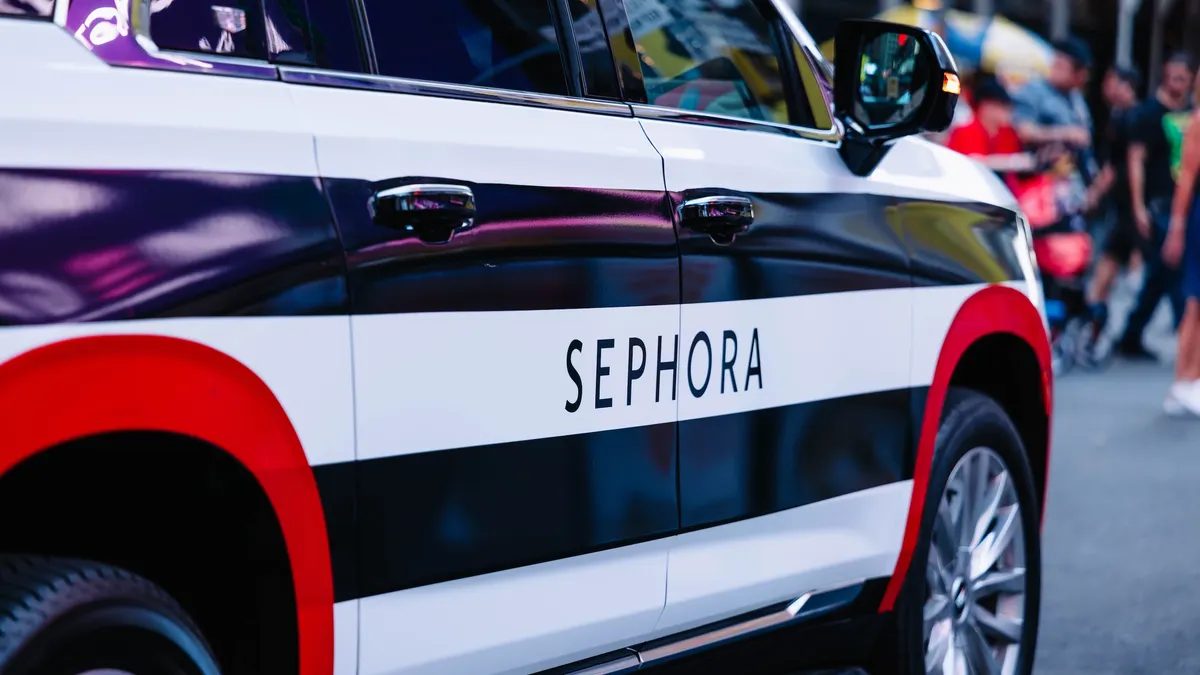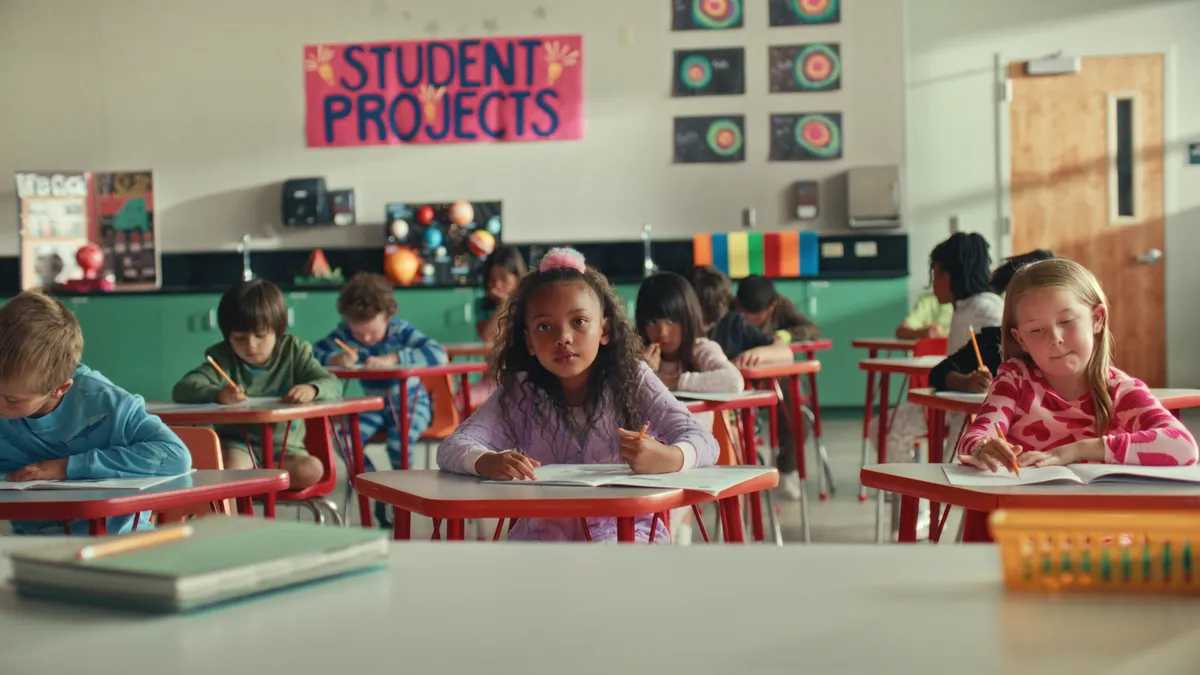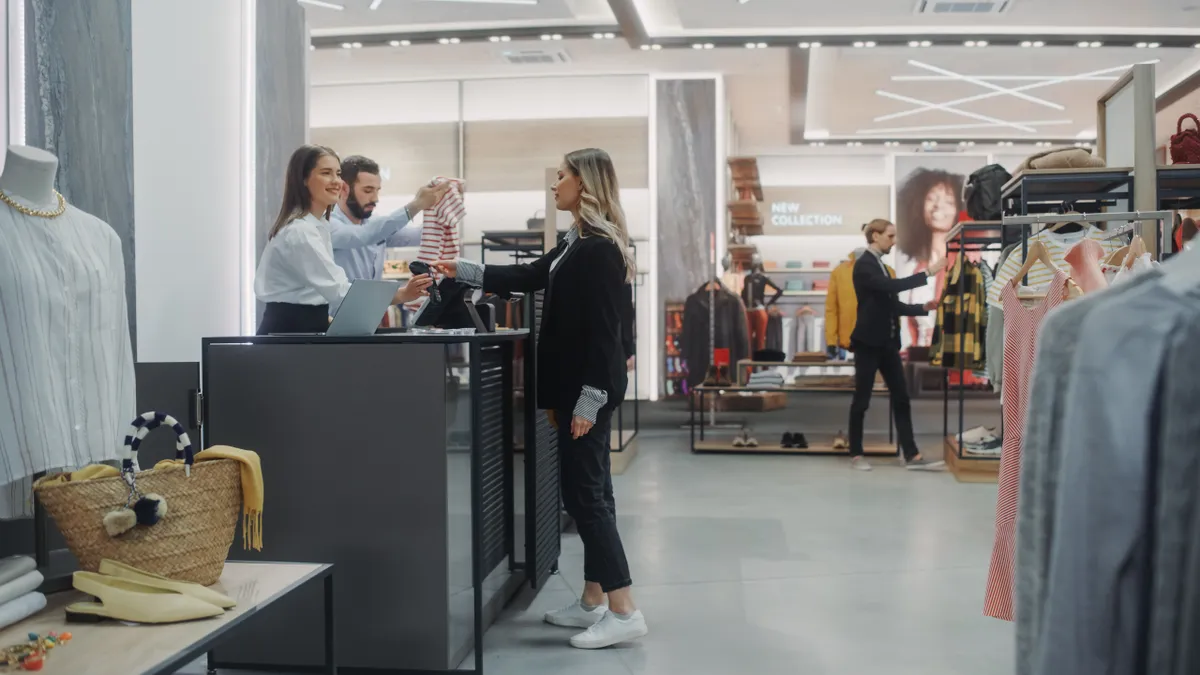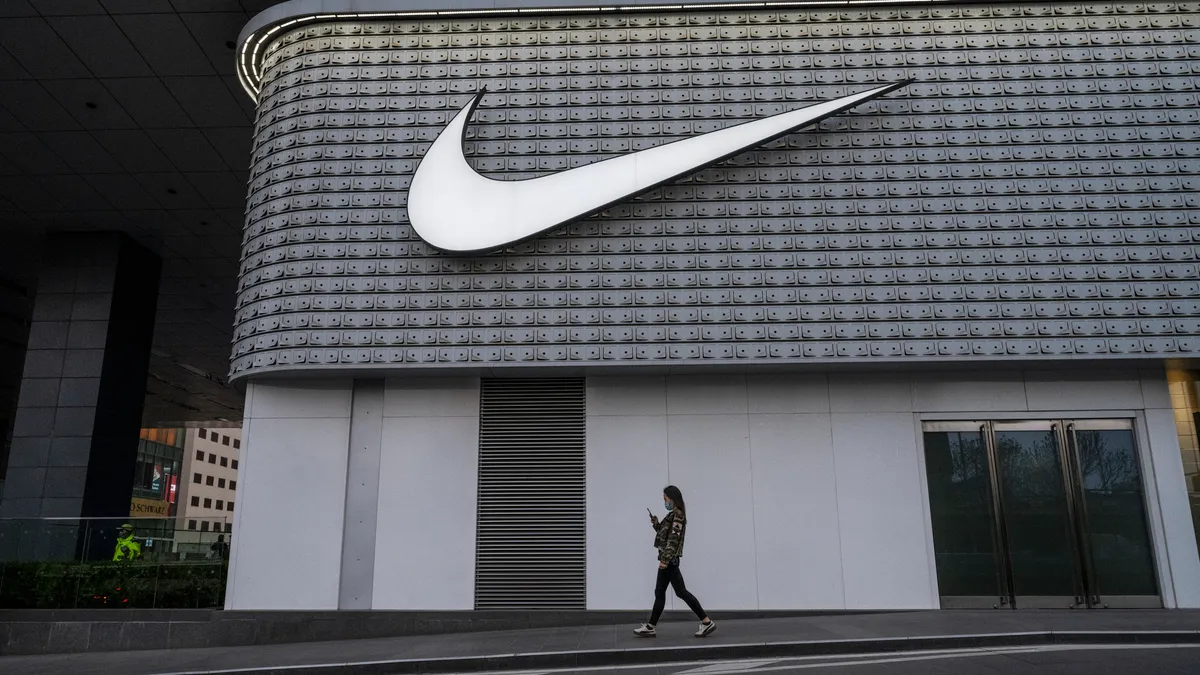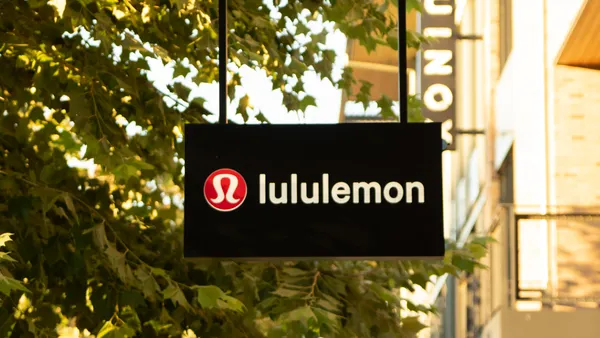"Stupid b----." That's just one term Nike executives have called female employees, according to a class action lawsuit filed in the U.S. District Court of Oregon.
In addition to claims that the company pays women less than men and gives them fewer opportunities for advancement, Kelly Cahill — one of two principal plaintiffs in the case — witnessed women at the athletics retailer called "dykes" and a "failure" by former Vice President Daniel Tawiah, who was promoted despite "several of these complaints, as well as complaints from other women to HR and senior managers about Mr. Tawiah," according to the lawsuit.
The 39-page lawsuit details a slew of sexual harassment incidents at the company as well, from male co-workers discussing condoms and inappropriate magazines at work to emails that referenced female employee's breasts or otherwise belittled women in the workplace.
Sara Johnston, the other leading plaintiff in the case, claims that after receiving unwanted messages and nude photos from a male coworker, who she later heard had "pushed a female co-worker against a wall and reached his hand up her skirt" at a company party, the human resources department at Nike told her that "no disciplinary or other measures were needed," and later promoted him to a managing position where he would be working closely with her.
"Although Nike has indicated that there are no further gender discrimination issues, they have yet to provide any evidence that that is in fact true."

Anna Joyce
Partner with Markowitz Herbold
Nike declined to provide further comment to Retail Dive beyond its original statement, noting that the company was "unable to comment on ongoing litigation."
However the lawsuit shakes out, the practices questioned in it could create larger problems for Nike in the women's market, as the brand attempts to appeal to the same demographic that it has struggled to appease within its own walls. That being said, it remains to be seen how many customers take Nike's workplace problems and apply them to their wallets.
Can Nike survive its 'toxic' culture?
Nike's troubled workplace culture, which has at times been described as "toxic" and a "boys club," has caused ripples in the news since March, when Brand President Trevor Edwards resigned under misconduct allegations.
After purging the company of several top executives and issuing a mea culpa to employees, the company has tried to get back on the right track by promoting female employees to replace departing executives and raising salaries for both men and women. That doesn't change anything for the class action lawsuit, though, which affects an estimated 500 women, according to Anna Joyce, a partner with Markowitz Herbold who helped draft the complaint.
"We were aware of that information at the time we filed the lawsuit," Joyce told Retail Dive in an interview, referencing Nike's recent actions to rectify company culture. She later added that, "Although Nike has indicated that there are no further gender discrimination issues, they have yet to provide any evidence that that is in fact true."
Indeed, the lawsuit highlights a set of practices at Nike which it deems responsible for the disparity between the fortunes of men and women at the athletics giant, including the retailer's practice of setting salaries based on "prior compensation history" and limiting the number of employees who can receive "Exceptional" or "Highly Successful" ratings in performance reviews, as well as "channeling women into positions and job assignments that Nike views as less valuable, less likely to lead to promotions, and less likely to lead to increased compensation."
"I think a lot of times people overplay the value of consumer boycotts — sometimes you do see an effect, but many times, especially with a very, very strong brand, you don't see real big hits on the market performance."

Barbara Kahn
Professor of Marketing at the Wharton School of Business, University of Pennsylvania
Aside from the issues these claims pose from a human resources perspective, including equal pay and gender discrimination, they also have the potential to taint Nike's brand image, at least temporarily, as shoppers associate the Nike brand with anti-female sentiment.
"This sort of case is always difficult for a major global brand like Nike," Daniel Durbin, a clinical professor of communication at the University of Southern California, wrote to Retail Dive in an email. "Nike's entire brand message is that they produce fitness and leisure apparel for everyone, that their brand is universal and (should) appeal to all demographics. Being hit by a class action lawsuit that details a sexist and threatening culture flies full in the face of that brand."
By some measures, the company's brand perception has already fallen. In May, a study by YouGov BrandIndex showed that just over a third (35%) of those surveyed said they'd consider buying from Nike, its lowest level in 11 months. Still, the company's most recent quarter showed no signs that sales had been substantially impacted by the news, and the company remains one of the top athletics brands for Generation Z.
A bigger question in terms of long-term impact is how long the lawsuit will last, and how many more similar events will occur to throw Nike back into the public spotlight and reassert this association.
"I think a lot of times people overplay the value of consumer boycotts — sometimes you do see an effect, but many times, especially with a very, very strong brand, you don't see real big hits on the market performance," Barbara Kahn, a professor of marketing at the Wharton School of Business at the University of Pennsylvania, told Retail Dive in an interview. "However, the perception of Nike as a women's brand — that I think is hurt."
A company at odds with itself
Some of the main claims in the lawsuit — that Nike "knowingly and purposefully discriminated against Class Members based on their sex," that the company paid women less than men for "substantially equal work," and that the HR department mishandled or ignored complaints of sexual harassment — go directly against what Nike has been pitching to its consumer base, and are also sometimes at odds with the company's previous actions.
Shortly before Nike became the center of attention in March, the company announced that it would be focusing more on the female market, including with an expanded range of sneakers for women and more female marketing voices in that space. That has since led to a sneaker collaboration with Vogue, per an article by Retail Dive's sister publication Marketing Dive, which marks the first Jordan collaboration for women.
"[T]here's the exterior-facing part of Nike and then there's what really happens behind closed doors and that's really what we're seeking to change."

Anna Joyce
Partner at Markowitz Herbold
The retailer has also made other moves to establish itself as a diverse retailer, including releasing the "Nike Pro Hijab" a year ago for Muslim athletes who struggled to find performance wear elsewhere, and partnering with strong female athletes for marketing campaigns, including tennis star Serena Williams.
"She is a phenomenally strong woman," Joyce said of Williams and her partnership with Nike. "So I think there's the exterior-facing part of Nike and then there's what really happens behind closed doors and that's really what we're seeking to change."
Nike's messaging will likely not change as a result of this lawsuit, and the impact it will have on customers is uncertain, but Durbin notes that the company has faced criticism before for standing by Tiger Woods, and that the company's approach, "has been to make their brand so large and seemingly universal that it can subsume criticisms and remain a flagship global brand."
Nike is also not alone in facing bias issues — both Nordstrom and Starbucks were faced with racial incidents and forced to re-evaluate training as a result — pushing them into the public eye and, at least temporarily, out of the public's favor.
Setting aside any potential impact to the bottom line, Nike has a lot of work to do in understanding how widespread these issues are within the company, and what they can do to prevent more incidents along the same lines, Deborah Munster, executive director at Diversity Best Practices, told Retail Dive in an interview.
"In some cases [Nike has] gotten it very right and this is an opportunity for them to go down the right path."

Deborah Munster
Executive Director at Diversity Best Practices
"Back in May, they took immediate action to eliminate some of the roles and some of the people who were directly involved in the incidents. They've also apologized — I think that's all in the right direction," Munster said. "They do need to understand systemically how the culture is viewed within the organization … Once they can understand that and get their arms around it, it's making sure that everyone understands now how to make that better. What are the solutions to bridge that gap?"
Unconscious-bias training is one possibility, but the retailer's response to the lawsuit will also impact customer perception, according to Munster. Accepting responsibility and attempting to make amends can go a long way in restoring customer trust, Munster said, adding that "in some cases [Nike has] gotten it very right and this is an opportunity for them to go down the right path."
The retailer's actions in the coming weeks could be especially important for the rising generation of consumers as well. A Cowen study from May showed that Nike held a sizable lead over its competitors with the Gen Z and millennial demographics. But those same consumers are the ones becoming more concerned with a brand's social purpose and responsibility and choosing where to spend their money as a result.
Being viewed as a company where women are "devalued and demeaned" could taint Nike's long-term brand image with female consumers, no matter how many Jordan collaborations it drops.








